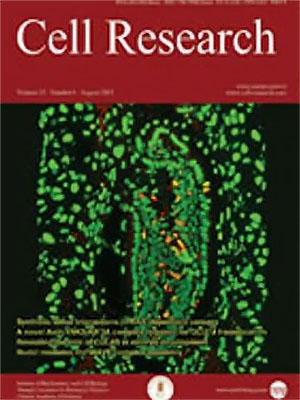
Volume 15, No 7, Jul 2005
ISSN: 1001-0602
EISSN: 1748-7838 2018
impact factor 17.848*
(Clarivate Analytics, 2019)
Volume 15 Issue 7, July 2005: 511-522
ORIGINAL ARTICLES
Gene expression alteration during redox-dependent enhancement of arsenic cytotoxicity by emodin in HeLa cells
Xiao Jing WANG, Jie YANG, Hui CANG, Yan Qiong ZOU, Jing YI*
Department of Cell Biology, Shanghai Second Medical University, 280 Chongqing Road, Shanghai 200025, China
Correspondence: Jing YI(yijing@shsmu.edu.cn)
Emodin (1,3,8-trihydroxy-6-methylanthraquinone) could enhance the sensitivity of tumor cells to arsenic trioxide
(As
2O
3)_induced apoptosis via generation of ROS, but the molecular mechanism has not been elucidated. Here, we
carried out cDNA microarray-based global transcription profiling of HeLa cells in response to
As
2O
3/emodin cotreatment, comparing with
As
2O
3_only treatment. The results showed that the expression of a number of genes was substantially
altered at two time points. These genes are involved in different aspects of cell function. In addition to redox regulation
and apoptosis, ROS affect genes encoding proteins associated with cell signaling, organelle functions, cell cycle,
cytoskeleton, etc. These data suggest that based on the cytotoxicity of
As
2O
3, emodin mobilize every genomic resource
through which the As
2O
3_induced apoptosis is facilitated.
FULL TEXT | PDF
Browse 2243


